Last Updated on August 8, 2023 by Denise Leo. Post first published on April 5, 2023.
Are you considering bringing a puppy into your family? Choosing the right dog breed is a crucial decision, as it can have lasting effects on both the owners and their canine companions.
Finding the perfect pup for your family can be a difficult decision. With so many dog breeds, how do you know which one best suits your unique needs and lifestyle?
Choosing the right puppy for your home can be tricky as every breed has unique positive and negative attributes. Fortunately, by researching different breeds’ temperaments and activity levels, families can quickly narrow down their options to find that perfect four-legged fit!
To help simplify this process, we’ve compiled a comprehensive guide designed to provide insight into what breeds may be best for families seeking a well-suited pet for kids, elderly relatives, and other living situations.
Read on to learn why some breeds might work better than others when looking for an addition to your family!
This article will give you helpful advice on finding the best family dog breed, choosing the best dog for family situations, and the right dog for your lifestyle.
This article will answer your questions:
- What is a good dog for your family?
- What is the best family dog breed?
- How to choose a puppy that’s right for you.
- How to choose the best puppy for your family situation.
- How to choose the right dog breed for my family.
- How to find the right dog for your lifestyle.
- What is the best breed of dog for family situations?

What is The Best Family Dog Breed
A dog can be a wonderful addition to any family. When deciding which dog breed is right for you, it’s essential to consider the size and energy level so that everyone in your household will be happy with their new furry friend.
You’ll also need to consider how big or small space you have available at home – some dog breeds are too large! It may seem like choosing from this list would require an expert, but luckily there are plenty of resources online where anyone could learn about all these different types and find one perfect for them.
Do you know what sort of dog you want? You need to find the best dog for my family situation. The worst thing you can do is buy a puppy, get him settled into his new home, and then discover he doesn’t suit you or your lifestyle, so you’re forced to find another home for him.
This may be heartbreaking for you, your family, and your puppy, too, as he has probably become somewhat used to you and his new environment. Sadly, many puppies find their way into Animal Welfare facilities.
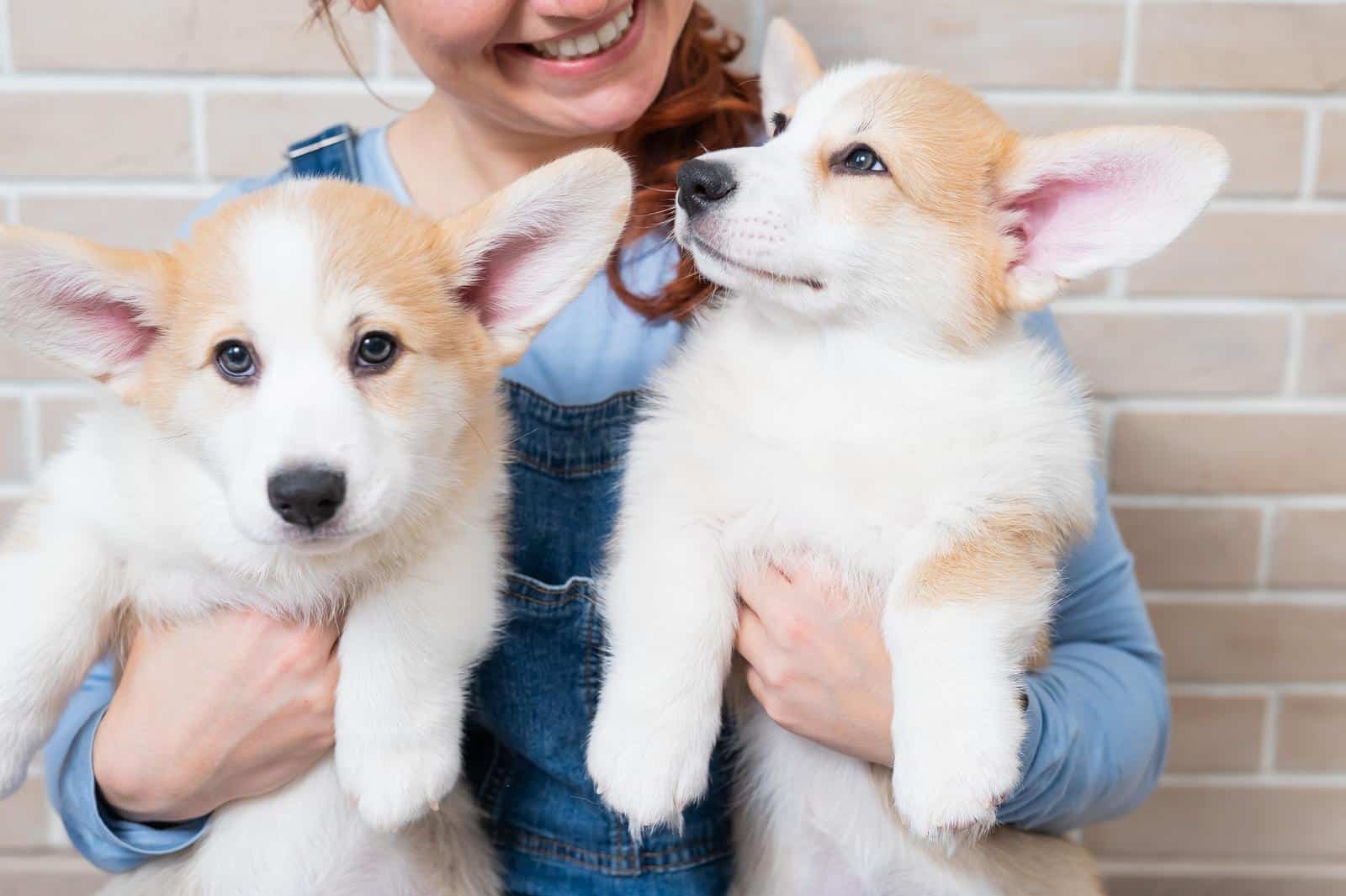
Pembroke corgi puppies
10 Best Family Dogs
Worldwide, there are more than 400 breeds of dogs. So which one is right for your family? If you have small children playing with the dog or running around it a lot, try to find a smaller dog breed, such as Pembroke Welsh Corgi or Papillon.
Breeds like Border Collies would be good because they love exercise and playing catch. Sensitive animals should probably avoid large home-alone periods, too, so make sure everyone agrees on what animal is best suited before making any final decision.
Do your homework thoroughly and view every possible outcome that may occur directly from your choice to buy a puppy. Then you should be able to choose the ideal dog for you. The dog will become an integral part of your life and your family.
Picking the perfect pup for your family can be a challenge! We’ve narrowed down 10 of our favorite furry friends to make it easier – from energetic Golden Retrievers to loyal German Shepherds; these are some of the best dog breeds for families and kids.
1. Labrador Retriever
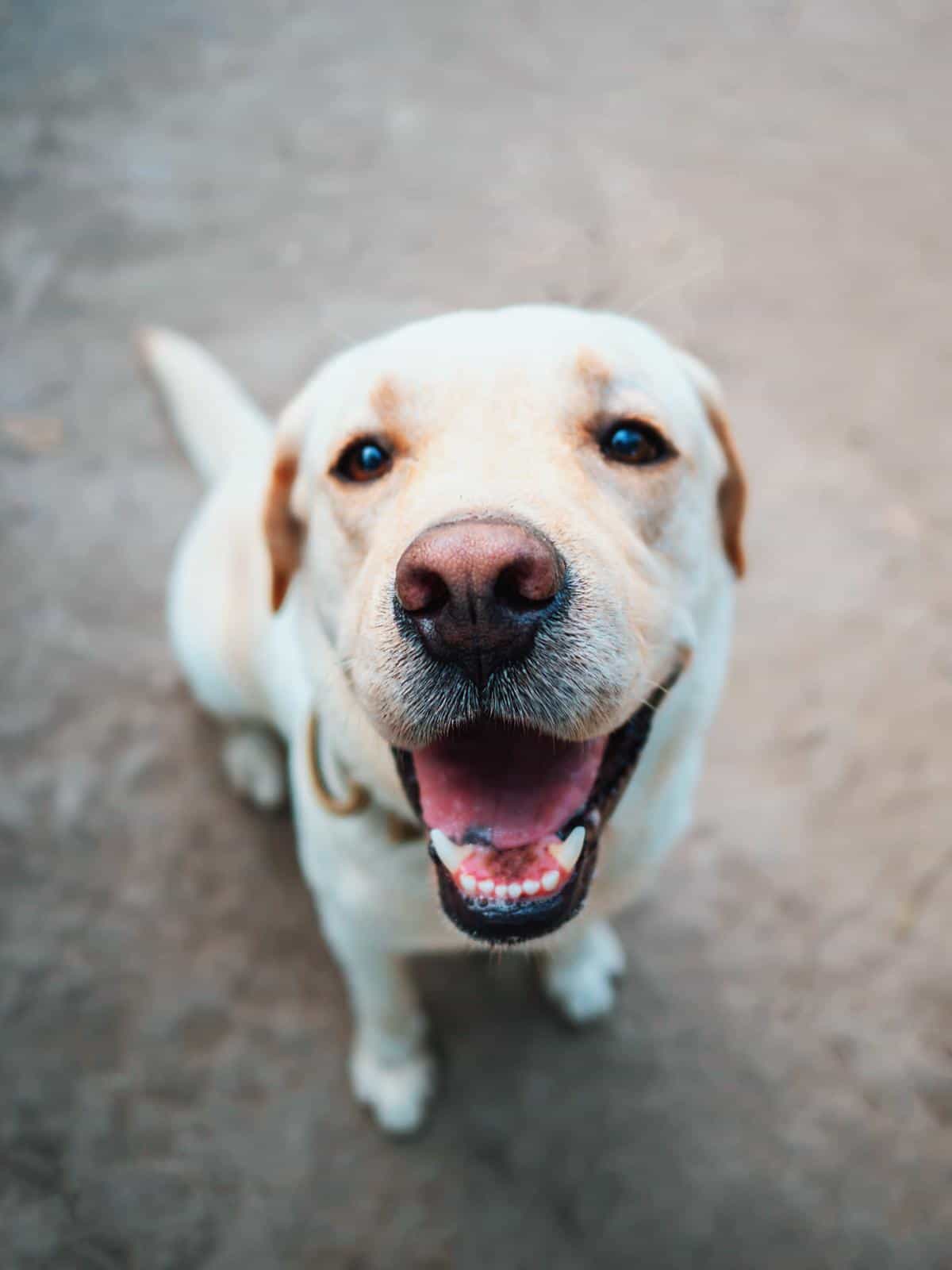
Known for its intelligence and laidback demeanor, the Labrador Retriever has been America’s favorite dog for years.
Versatile in nature with a remarkable aptitude to please their owners, these pups enjoy demonstrating their multifaceted talents from hunting to dock diving – even obedience competitions! Encouraging quality time spent between you and your dog is just one of the many reasons Labradors are so beloved.
- Personality: Incredibly friendly, active, and full of energy.
Energy Level: Labs are lively and unafraid of expressing their enthusiasm!
Good with Children: Labs make great playmates with children when supervised.
Good with Other Dogs: get along famously with furry friends if introduced in a controlled environment.
Shedding: Regular brushing is necessary.
Grooming: Regular brushing is required.
Trainability: They have an impressive eagerness to please, making them easily trainable and a pleasure for their owners.
Height: 22.5-24.5 inches (male), 21.5-23.5 inches (female).
Weight: 65-80 pounds (male), 55-70 pounds (female).
Life Expectancy: 10-12 years.
Barking Level: Barking at medium levels throughout their lifetime.
2. Golden Retriever
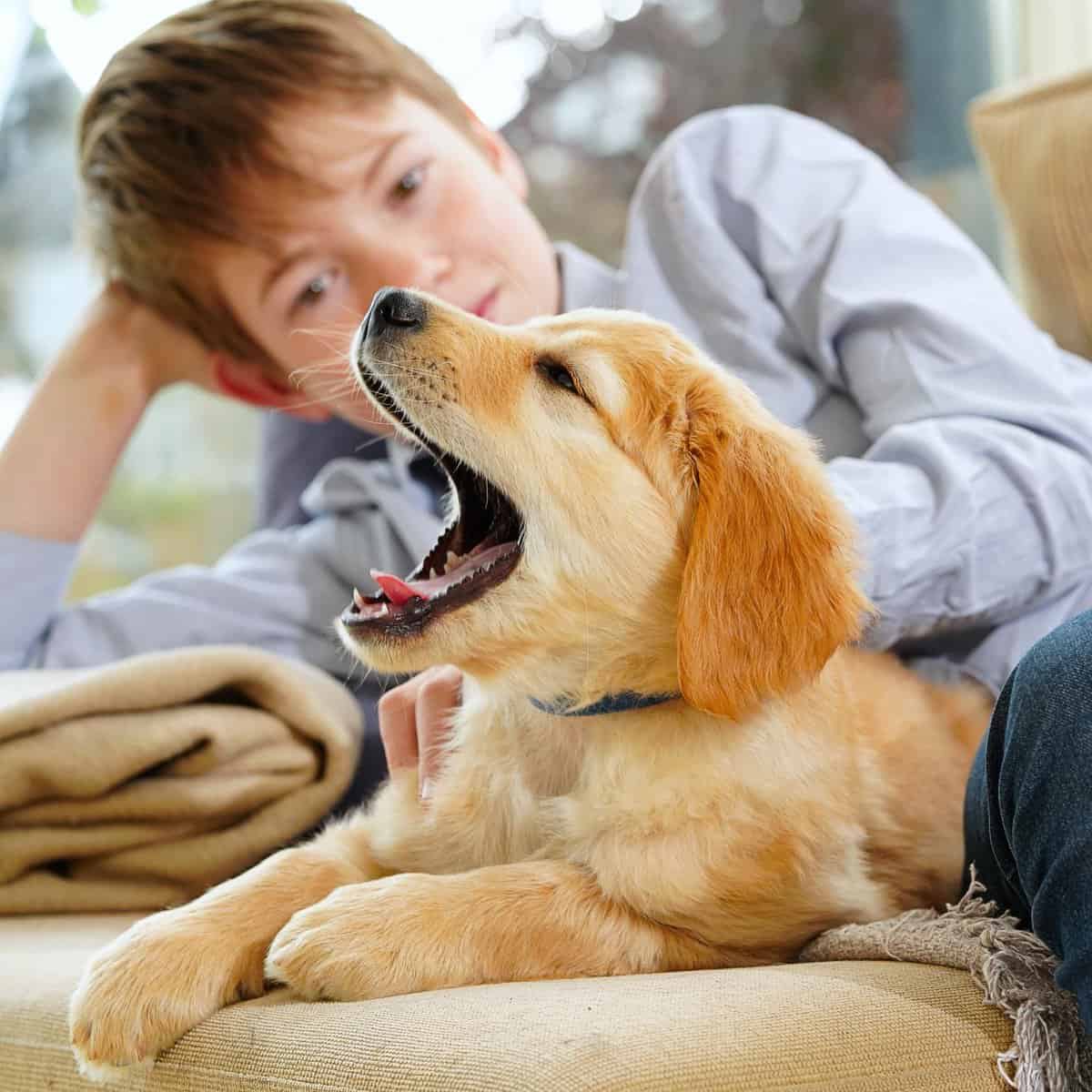
Once bred for hunting in upland and waterfowl, Golden Retrievers have proven their versatility, intelligence, and amicable personality to become one of the world’s most beloved breeds. They are now highly successful across various competitions, from sporting events to affectionate family companionship.
- Personality: Golden Retrievers are known for their intelligence, friendliness, and devotion.
- Energy Level: These active dogs require daily exercise to stay healthy and happy.
- Good with Children: They get along splendidly with kids.
- Good with other Dogs: Yes
- Shedding: Shedding is a seasonal occurrence.
- Grooming: Only occasional grooming should be necessary.
- Trainability: Very easy to train due to being eager to please.
- Height: 23-24 inches (male), 21.5-22.5 inches (female).
- Weight: 65-75 pounds (male), 55-65 pounds (female).
- Life Expectancy: 10-12 years.
- Barking Level: Only the necessary barking.
3. Bulldog

Bulldogs are beloved by kids and adults alike. This unique pup is an ideal companion, with its wrinkly smile sure to brighten anyone’s day. As loyal friends suited for any environment – urban or rural – these dogs will be your family’s perfect playmate!
- Personality: Bulldogs are calm, courageous, and friendly pups with a noble demeanor.
- Energy Level: Though they don’t require intensive exercise, regular walks to stretch their legs is essential.
- Good with Children: Friendly by nature towards children.
- Good with other Dogs: They do fine around other dogs.
- Shedding: Seasonal shedding.
- Grooming: Weekly grooming sessions are required.
- Trainability: Training is easy due to their responsiveness.
- Height: 14-15 inches.
- Weight: 50 pounds (male), 40 pounds (female).
- Life Expectancy: This is short, only 8-10 years.
- Barking Level: They bark surprisingly quietly, so they won’t disturb your peace.
4. Beagle

The Beagle – is beloved for its small size, playful nature, and low-maintenance coat. While the breed’s true origin remains a mystery, one thing is certain: these smart pups make wonderful four-legged friends.
- Personality: The Beagle is a merry, friendly, and curious pup.
- Energy Level: This breed is known for its incredibly active energy level; this little canine needs plenty of outdoor activity to stay healthy and content!
- Good with Children: They are very good with children.
- Good with other Dogs: Yes
- Shedding: Seasonal shedding.
- Grooming: Weekly grooming is required.
- Trainability: You’ll find them eager to please when it comes to training.
- Height: 13 inches & under, 13-15 inches.
- Weight: under 20 pounds (13 inches & under), 20-30 pounds (13-15 inches).
- Life Expectancy: On average, 10-15 years
- Barking Level: Very Vocal.
5. Pug

The Polaroid-worthy Pug packs a plethora of pup into their petite pooch package. With an infectious air and big, bold personality that’s hard to resist – especially for kids! – this little dog loves spending time with family above all else and is content wherever you call home.
Multum in parvo ( which translates roughly to a lot of dog in a small space)? More like multum in amore!
- Personality: Pugs are charming, lovable companions known for their even temperaments and mischievous personalities.
- Energy Level: These lively little dogs have a moderate energy level which can be met with regular exercise.
- Good with Children: They do best when supervised around young children.
- Good with Other Dogs: Usually get along well with other pets.
- Shedding: Shedding can occur regularly throughout the year.
- Grooming: Grooming is relatively straightforward but must include regular washing of wrinkle areas.
- Trainability: Despite being rather agreeable in training sessions, Pug owners should always provide consistent leadership and correction when needed.
- Height: 10-13 inches.
- Weight: 14-18 pounds.
- Life Expectancy: This is 13-15 years.
- Barking Level: They tend to bark if necessary.
6. Irish Setter

The ever-energetic Irish Setter, whose friendly visage is likely familiar from the likes of Big Red, emerged in popularity during the 1700s. Perfect for active households and always eager to explore outdoors – these outgoing four-legged friends make excellent companions for families on the move!
Personality: The Irish Setter is a happy-go-lucky, sweet pooch with abundant energy!
Energy Level: Irish Setters are active pooches who love to run.
Good with Children: This four-legged friend loves interacting with children.
Good with other Dogs: Yes.
Shedding: Seasonal shedding.
Grooming: Weekly grooming is required.
Trainability: These intelligent pups respond well to training thanks in part to the breed’s eagerness-to-please personality, making them easier than many hounds in obedience work.
Height: 27 inches (male), 25 inches (female).
Weight: Typically weighing in at 70 pounds for males or 60 pounds for females.
Life Expectancy: Approximately 12-15 years
Barking Level: Will bark when necessary or feeling threatened.
7. Brussels Griffon

The Brussels Griffon is an energetic and intelligent companion with a fearless spirit. Perfect for small living spaces, they love to be engaged through playtime and mental stimulation. If you give them plenty of opportunities to stretch their legs, this pup will bring joy to your home!
- Energy Level: The Brussels Griffon may be small in size, but they are full of energy and spirit!
- Good with Children: Children should be supervised around them.
- Good with other Dogs: Socializing your Griffons can bring out the best behavior when meeting other dogs – all under supervision, of course.
- Shedding: Moderate seasonal shedding.
- Grooming: Requires weekly grooming for maximum benefits.
- Trainability: Training comes naturally.
- Height: 7-10 inches.
- Weight: 8-10 pounds.
- Life Expectancy: Average life expectancy between 12-15 years.
- Barking Level: Barks When Necessary.
8. Newfoundland
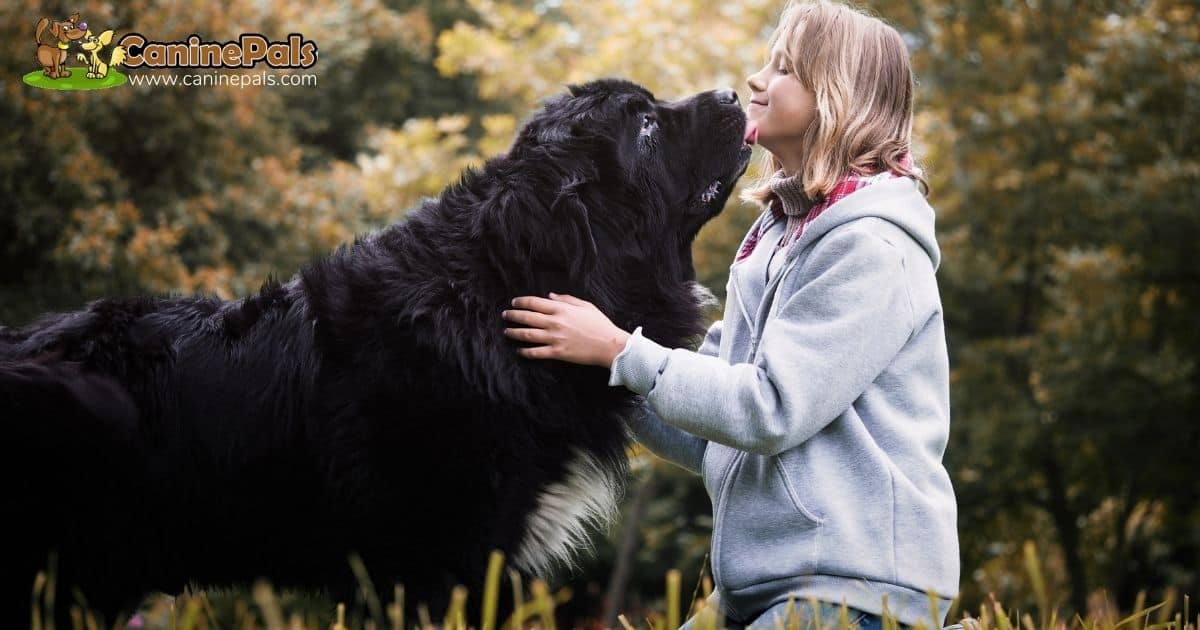
Newfoundlands stand out for their loyal, compassionate, and intelligent nature. They are eager to help with tasks on command but can also act independently during rescue operations. Above all, they make great family pets due to their sweet disposition, which never fails to charm!
Personality: Newfoundland dogs possess a sweet, patient, devoted nature – making them excellent companions.
Energy Level: They are quite active and need plenty of room to run around.
Good with Children: Newfs get along great with children.
Good with Other Dogs: Yes.
Shedding: Newfs are seasonal shedders.
Grooming: Require Weekly brushing.
Trainability: Training these gentle giants is also made easy due to an eagerness to learn new things.
Height: Despite their large size (height of up to 28 inches in males & 26 inches in females.
Weight Ranges: from 130-150 pounds for males and 100-120 pounds for females).
Life Expectancy: On average, they live 9-10 years.
Barking Level: Keen barkers if necessary.
9. French Bulldog

French Bulldogs are a perfect pup for urbanites and families alike. Boasting a pleasant temperament, they’re highly trainable – perfect companions to show off at the park or on your neighborhood streets!
- Personality: French Bulldogs are the perfect companion – fun-loving, bright, and adaptable.
- Energy Level: They’re content to relax in your lap rather than going full speed ahead but still need regular exercise to stay fit.
- Good with Children: Playful with kids of all ages.
- Good with other Dogs: Well-mannered around other furry friends.
- Shedding: Their seasonal shedding is minimal.
- Grooming: Occasional grooming will do just fine.
- Trainability: An easy breed for training.
- Height: 11-13 inches.
- Weight: under 28 pounds.
- Life Expectancy: 10-12 years.
- Barking Level: Low.
10. Collie

Collies are the perfect choice for an active family! These fantastic dogs boast legendary herding instincts and will always be loyal companions with their generous nature. They’ve got tons of energy to keep up with your activities, too – these furry friends ensure you never miss a beat.
- Personality: Collies are a loyal and graceful breed — perfect for families who prefer an active pup.
- Energy Level: They have plenty of energy to run around but can easily settle down at home with their owners too!
- Good with Children: They get along great with kids.
- Good with Other Dogs: With supervision.
- Shedding: Seasonal shedding.
- Grooming: Weekly grooming is required.
- Trainability: Collies respond very well to training.
- Height: Collies tend to stand 24-26 inches tall (males) and 22-24″ high (females).
- Weight: Males weigh between 60 – 75 pounds, while females usually tip the scale from 50 – 65 lbs.
- Life Expectancy: 12-14 years.
- Barking Level: Enthusiastic barkers.
Selecting the Right Breed for The Family Dog
The following factors must be analyzed fully before you make that ultimate purchase and will assist you in choosing the perfect good dog. You must find out what dog breed is right for the family dog before the purchase and how to make good dog matches with your family.
Are You Able to Have Your Dog Fully Enclosed?
Check every inch of the space where you’ll keep your dog when you’re out or when he goes out for exercise. All fencing must be tightly secured. This includes the bottom of the fencing because some dogs can burrow their way under almost any type of fence. Check that he can’t jump over it, squeeze between the gate fittings or fence palings, or squeeze between any wires that are part of the fencing.
Can You Give Your Dog Enough Exercise?
You need to spend quality time with your beloved dog, and exercise is part of that time. Dogs vary as to the amount of exercise needed. If your dog wants a walk every day, that may motivate you to do the same. It’s great exercise physically, and it can calm you mentally at the same time. Life doesn’t always go to plan, but if your dog is kept cooped up often, it’s grossly unfair of you to buy him in the first place.
Dog people will naturally talk to other dog people as they walk in public places. This can mean you’ll make more friends and feel as though this daily commitment greatly benefits you and your four-legged friend.
Dog Coat Care
Owning a dog isn’t just feeding and exercising him. It also means caring for his coat on a regular basis. The grooming process can help strengthen the bond between your beloved pet and you. Numerous problems can occur if you don’t do this regularly.
Here are a few examples:
Your fluffy, cute puppy can turn into a real mess if he’s not groomed on a regular basis. Breeds with short coats can molt and their hair seems to go everywhere, including your carpet, furniture, clothes, and even your bed if he spends time in bed with you.
A professional dog groomer salon can be costly. Finding a reliable, caring groomer can be difficult to locate and even harder to get an appointment. Professional groomers rarely try to comb the knots out of matted hair that’s quite long.
They tend to cut the coat off right down to the skin. Once it starts growing back (like a carpet), it’s nearly impossible to comb. In between those times, you can either cover your pet in a rug similar to the ones used on horses or leave his skin open to the weather, and then he can get sunburnt in the hotter weather and wet and cold in the lower temperatures.
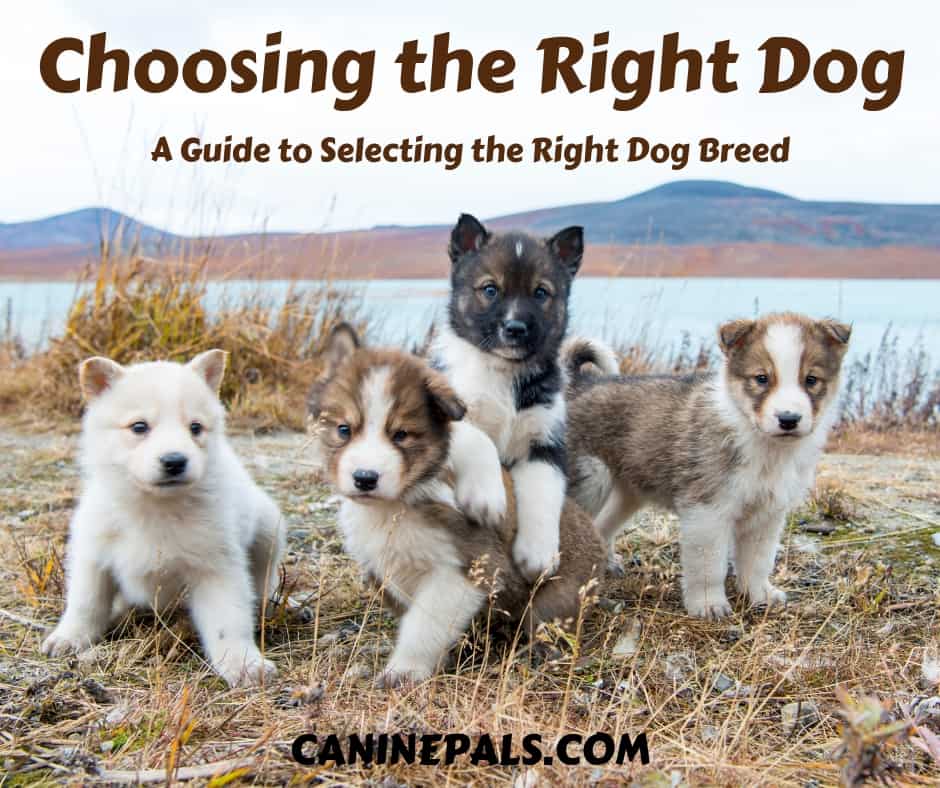
So it’s wise to choose a dog breed with a coat you know how to look after. Ensure you have plenty of time to learn how best to look after it. If your new pet is a cross-breed, it may be complete guesswork trying to decide the type of coat he has. On the other hand, there are copious amounts of information available regarding purebreds that you can learn.
Do you Know Your Dog Local Laws?
If you reside in a city, it’s essential to check the local laws governing dogs and the location of on-leash and off-leash areas where your dog can be exercised. If you wish to buy a big dog, there may be restrictions on where he can and can’t be exercised.
In many local councils, you have to get your dog registered (in a similar way to how you pay rates. If you’re a renter or live in a retirement village or unit, check with the people running the place you live about what rules are in place regarding whether you can have a dog.

How to Find The Right Breed of Dog for My Family?
If children grow up having a dog living in their home, it should be pleasurable for the dog and the children. If children grow up without pets, a lifetime of experiences is missed. However, there are certain safety elements to consider.
First off, particularly if the children are small, remember dogs are actually pack animals. Most dogs don’t see children in the same way as adults. A dog could attempt to treat the child as part of a pack and try to dominate him/her, which may include biting.
If you buy a dog for a family with children, you must be “the boss” 100% of the time, and this means you never leave the dog alone with a child. A helpful solution is having a small dog cage where he can go to escape the child if you’re not home. The dog will get used to the concept of “his space,” and the child learns that their dog can sometimes prefer to be left alone and that he does have feelings.
By creating and abiding by these rules, introducing a new dog to the family will be a great learning experience and fun for everyone.

What’s Your Lifestyle?
Choosing a large retriever is not the best idea if you’re a single person in a tiny apartment on the third floor. However, if you love running and want someone who can keep up with you OR if you have many kids who will enjoy playing with a dog, the bigger dog can be worthwhile.
What is The Best Breed of Dog for Family Situations Conclusion
All in all, when it comes to finding the best dog breed for family situations, there is no one-size-fits-all answer. Every family has different needs, so it’s essential to consider those when deciding.
With that said, some breeds are more suitable for families than others. Dog breeds such as Labrador Retrievers and Golden Retrievers are loyal and patient—qualities that make them perfect additions to any family dynamic.
On the other hand, smaller breeds like Poodles and Maltese are intelligent and affectionate, making them excellent companions in most homes.
No matter which dog breed you choose, having a dog can be an enriching experience and bring joy to your life for years to come! So take the time to research and decide which pup would suit you best.
To find the ideal dog breed, you need to evaluate a dog’s compatibility with your children, exercise needs, assertiveness, and friendliness before buying a dog of any kind. You’re not merely buying a dog. You’re buying a new family member, someone to care for, play with, feed, pat and enjoy as part of your family. So choose your pet wisely.
Copyright CaninePals.Com. All Rights Reserved.
References and Further Reading:
American Kennel Club
English Kennel Club


